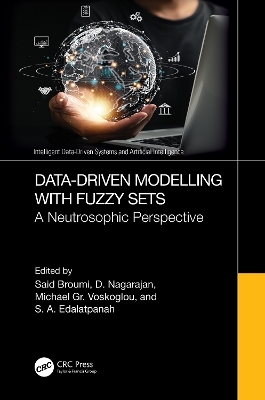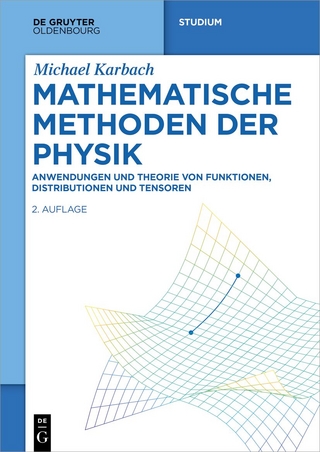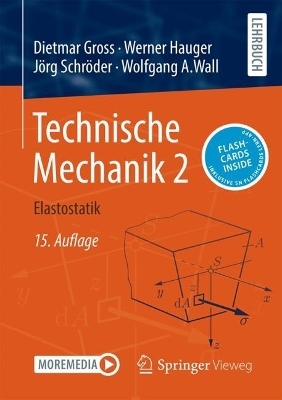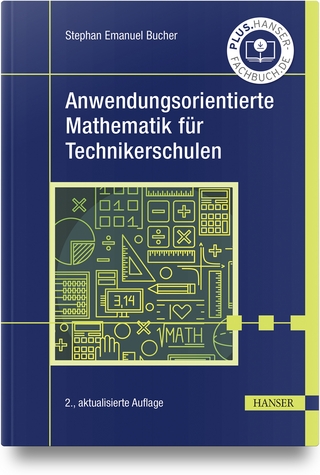
Data-Driven Modelling with Fuzzy Sets
CRC Press (Verlag)
978-1-032-78263-8 (ISBN)
Fuzzy sets have long been employed to handle imprecise and uncertain information in the real world, but their limitations in dealing with incomplete and inconsistent data led to the emergence of neutrosophic sets. In this thought-provoking book, titled Data-Driven Modelling with Fuzzy Sets: A Neutrosophic Perspective, the authors delve into the theories and extensive applications of neutrosophic sets, ranging from neutrosophic graphs to single-valued trapezoidal neutrosophic sets and their practical implications in knowledge management, including student learning assessment, academic performance evaluation, and technical article screening. This comprehensive resource is intended to benefit mathematicians, physicists, computer experts, engineers, scholars, practitioners, and students seeking to deepen their understanding of neutrosophic sets and their practical applications in diverse fields. This book comprises 11 chapters that provide a thorough examination of neutrosophic set theory and its extensions. Each chapter presents valuable insights into various aspects of data-driven modeling with neutrosophic sets and explores their applications in different domains. The book covers a wide range of topics. The specific topics covered in the book include neutrosophic submodules, applications of neutrosophic sets, solutions to differential equations with neutrosophic uncertainty, cardinalities of neutrosophic sets, neutrosophic cylindrical coordinates, applications to graphs and climatic analysis, neutrosophic differential equation approaches to growth models, neutrosophic aggregation operators for decision making, and similarity measures for Fermatean neutrosophic sets. The diverse contributions from experts in the field, coupled with the constructive feedback from reviewers, ensure the book's high quality and relevance.
This book
presents a qualitative assessment of big data in the education sector using linguistic quadripartitioned single-valued neutrosophic soft sets
showcases application of n-cylindrical fuzzy neutrosophic sets in education using neutrosophic affinity degree and neutrosophic similarity index
covers scientific evaluation of student academic performance using single-valued neutrosophic Markov chain
illustrates multi-granulation single-valued neutrosophic probabilistic rough sets for teamwork assessment
examines estimation of distribution algorithms based on multiple-attribute group decision-making to evaluate teaching quality
With its wealth of knowledge, this book aims to inspire further research and innovation in the field of neutrosophic sets and their extensions, providing a valuable resource for scholars, practitioners, and students alike.
Said Broumi is serving as an associate assistant professor at the Regional Center for the Professions of Education and Training, Casablanca-Settat, Morocco. Dr. Broumi completed his MSc and PhD in computer science from University of Hassan II in Casablanca. He is a permanent member of the Laboratory of Information Processing, Faculty of Science Ben M’Sik, University Hassan II. His research interests are graph theory, extended fuzzy graphs, decision analysis, and neutrosophic theory. He has published diverse works on neutrosophic graph theory, soft set theory, multiattribute decision analysis, and some alternative theories of neutrosophic mathematics. He has published more than 200 research articles in international peer-reviewed ISI indexed /impact factor journals. Some of his papers have been published in high-impact journals including Complex & Intelligent Systems , Computational and Applied Mathematics , Symmetry , and Journal of Neutrosophic Set and Systems . His work has been cited more than 5,992 times (Scholar Google, H-index 41). He has presented his research work at some international as well as national conferences. He is a reviewer for a number of international journals and He is also an editor-in-chief of Neutrosophic Set and Systems and International Journal of Neutrosophic Science. D. Nagarajan is a professor in the Department of Mathematics, Rajalakshmi Institute of Technology, Chennai, India. He received his Ph.D. from Manonmaniam Sundaranar University in 2007. He has a total of 23 years of experience in both academia and research international as well as national institutions. He has published 110 research articles in international reputed journals as well as serving as a reviewer for many peer-reviewed journals. He has two patents to his credit. His research interests include stochstic processes, fuzzy sets and system, neutrosophic control systems and image processing. He is also associated with various educational and research societies, like IMS, ISTE, IAENG, AMTI and ISRD. He is the guest editor of three journals and coauthor of three books published by Lambert and Notion Press. He is also associate editor of Franklin Open. Michael Gr. Voskoglou (B.Sc., M.Sc., M.Phil., Ph.D. in Mathematics) is an emeritus professor of mathematical sciences at the School of Engineering of the Graduate Technological Educational Institute of Western Greece, which has recently been joined with the University of Peloponnese. He was a full professor at the same Institute from 1987 to 2010. He was also an instructor at the Hellenic Open University, in the mathematics department of the University of Patras, and at the Schools of Primary and Secondary In-Service Teachers’ Training in Patras and a teacher of mathematics at the Greek Public Secondary Education (1972–1987). He worked as a visiting researcher at the Institute of Mathematics and Informatics of the Bulgarian Academy of Sciences in Sofia for three years (1997–2000), under sabbatical. He has lectured as a visiting professor in postgraduate courses at the School of Management of the University of Warsaw (2009), in the Department of Operational Mathematics of the University of Applied Sciences in Berlin (2010) and in the Mathematics Department of the National Institute of Technology of Durgapur (2016) under a grant of the Indian government. He is the author/editor of 18 books in Greek and in English and of more than 600 papers published in international journals, book chapters, and conference proceedings in more than 30 countries on five continents, with more than 2000 citations from other researchers. He used to be the Editor in Chief of the International Journal of Applications of Fuzzy Sets and Artificial Intelligence (2011–2020), and currently he is a reviewer for the American Mathematical Society, Editor in Chief of Construction, Design, Maintenance (www.wseas.com/journals/dcm/index.php) and member of the editorial boards of many other international scientific journals. He has conducted five programs of technological research on applications of quantitative methods to management (1989–1997), he has supervised many student dissertations, and he was an external examiner of Ph.D. dissertations at Universities of Egypt, India and Saudi Arabia. He is the recipient of many scholarships, distinctions, and honorary awards and a member of many scientific associations (AMS, HMS, ICTMA, IETI, etc.). His research interests include algebra, fuzzy logic, Markov chains, artificial intelligence, and mathematics education. S. A. Edalatpanah is an associate professor at the Ayandegan Institute of Higher Education, Tonekabon, Iran. Dr. Edalatpanah received his Ph.D. in applied mathematics from the University of Guilan, Rasht, Iran. He is currently working as the Chief of R&D at the Ayandegan Institute. He is also an academic member of Guilan University and the Islamic Azad University of Iran. Dr. Edalatpanah’s fields of interest include numerical computations, operational research, uncertainty, fuzzy set and its extensions, numerical linear algebra, soft computing, and optimization. He has published over 150 journal and conference proceedings papers in these research areas. He serves on the editorial boards of several international journals. He is also the Director-in-Charge of Journal of Fuzzy Extension & Applications. Currently, he is president of the International Society of Fuzzy Set Extensions and Applications.
1. Applications of Neutroscopic Sets in Science, Humanity and Education. 2. First Order Non Homogeneous Ordinary Differential Equation with Initial Value Condition under Pentagonal Neutrosophic Number Environment. 3. Analysis of M/M/c Queue with Linguistic Single Valued Neutrosophic logic using Parametric Nonlinear Programming. 4. A Study on Cardinalities of the Neutrosophic Set and Neutrosophic Crisp Set. 5. A Study on the Systems of Neutrosophic Cylindrical Coordinates. 6. Application of Interval Quadri partitioned Single Valued Neutrosophic Sets to Graphs and Climatic Analysis. 7. Neutrosophic Submodule of Direct sum. 8. Quota harvesting logistic growth model:A neutrosophic differential equation approach. 9. Pentapartitioned Neutrosophic Dombi Weighted Aggregation Operator for MADM. 10. A Novel Technique of Neutrosophic Mayor-Torrens Hybrid Aggregation operator in Multi-Criteria Decision Making. 11. Similarity Measures of Fermatean Neutrosophic Sets based on the Euclidean Distance.
| Erscheinungsdatum | 10.07.2024 |
|---|---|
| Reihe/Serie | Intelligent Data-Driven Systems and Artificial Intelligence |
| Zusatzinfo | 37 Tables, black and white; 20 Line drawings, black and white; 20 Illustrations, black and white |
| Verlagsort | London |
| Sprache | englisch |
| Maße | 156 x 234 mm |
| Gewicht | 453 g |
| Themenwelt | Mathematik / Informatik ► Mathematik ► Angewandte Mathematik |
| Technik ► Elektrotechnik / Energietechnik | |
| Technik ► Umwelttechnik / Biotechnologie | |
| ISBN-10 | 1-032-78263-3 / 1032782633 |
| ISBN-13 | 978-1-032-78263-8 / 9781032782638 |
| Zustand | Neuware |
| Haben Sie eine Frage zum Produkt? |
aus dem Bereich


